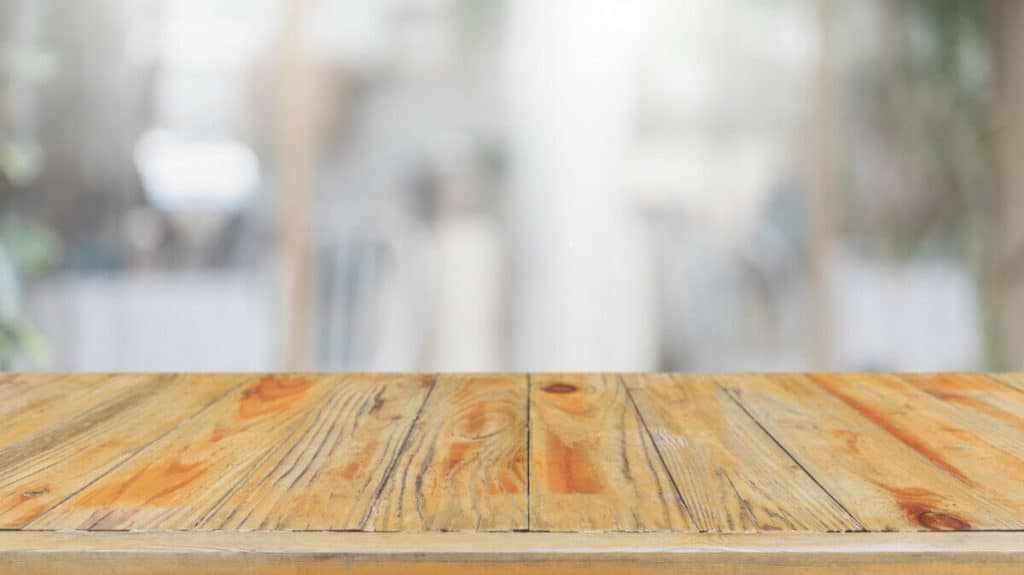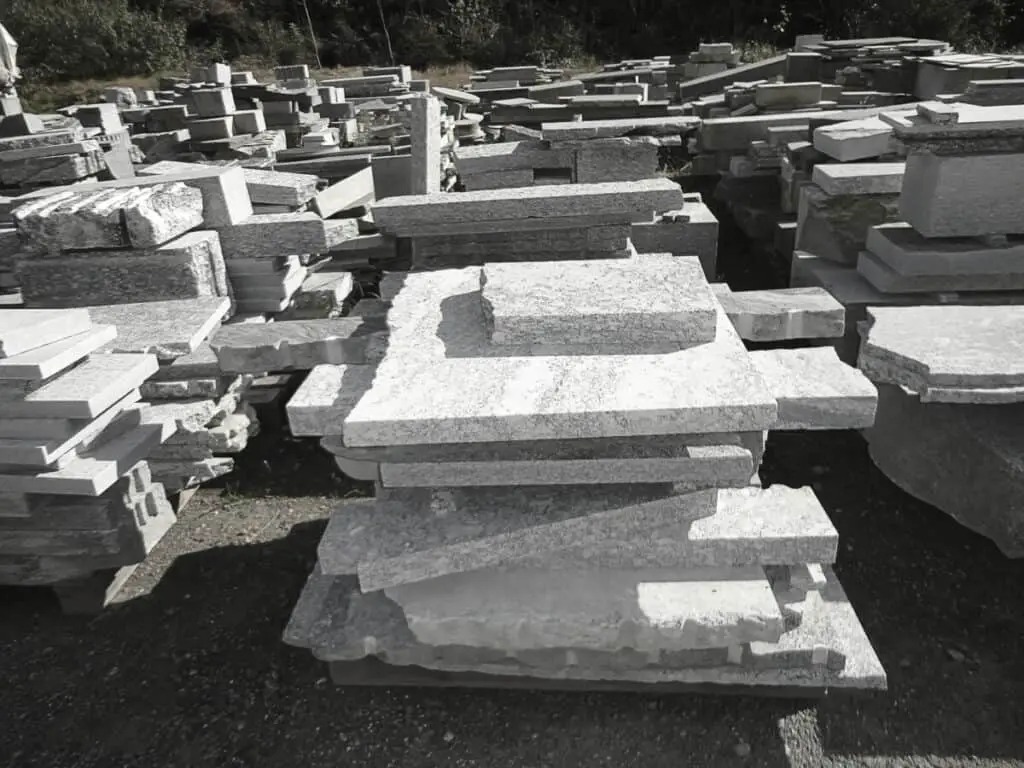
Home renovations can be both exciting and exhausting, especially when you’re unsure what to do with all of the materials you’re ripping out. When it comes to countertops, you may actually be able to recycle them. It all depends on what the countertop is made of, and how easily you can remove it.
Laminate and wood countertops can be recycled through local facilities and drop-off locations. Granite and marble distributors will often accept old countertop slabs to repurpose or reuse them. Organizations that seek to provide affordable housing will also accept donations of old countertops.
Depending on the material of your counter, you may be able to do more with it than you originally thought. Whether you upcycle the counter, recycle it, or donate the materials to a seller, it will be worth the effort to keep these large slabs out of local landfills.
Removing Old Countertops
First and foremost, if you’re going to remove an old countertop and plan on salvaging the surface to be recycled or reused, your best bet would be to hire a professional contractor or a deconstruction service. Experts in the field will know how to safely and sustainably separate your counter from the walls and floor without damaging too many of the materials. If you’re determined to complete the process yourself, more power to you. Here’s a quick rundown of what that would look like:
- Turn the water off prior to disconnecting the plumbing—an accidental in-home flood is a sure way to kill the creative mood. Remove the plumbing fixtures by unscrewing the sink and pipes, as well as any mounting pieces.
- Turn off and disconnect any gas lines that may connect through the counter. Double-check countertops surrounding ovens or stoves. Disconnect the electrical wiring as well, so be completely safe.
- Remove cabinet drawers and any other pull-outs or surface appliances. This will make the countertops easier to detach and move.
- Using a putty knife (or whatever similar tool you can get your hands on) separate the counter from the wall by loosening the caulk with a prying motion. Do this all the way along the entire countertop, anywhere that it meets a backsplash or another wall.
- Use a crowbar to pry the counter away from the wall. At this point, if there are mounting screws holding the counter in place, you will notice where they are and be able to remove them.
- From inside or beneath the cabinets, remove any mounting screws holding the countertop in place.
You may have to use the pry bar again to separate the countertop from the cabinets, but if it is granite or marble the safest bet would be to call a contractor (even for just this step!). If the counter is tiled, remove the tiles prior to removing the wooden base. If the counter is laminate, you do not need to separate the top layer from the other layers, as laminate material is fairly light and unlikely to get damaged severely during transportation.
And there you have it! Those are the basics for removing a countertop safely, but as always with home renovations, it’s probably not that simple. Complications and exceptions will always arise; when in doubt, hire help. And always, do your research. Now let’s talk more about what the process looks like for each of the following materials and your options for recycling or repurposing them.
Recycling Wooden or Laminate Countertops

Wood can always be repurposed. Yes, it’s biodegradable, but there’s no reason for your wooden countertop to waste away at a dump. No matter how old or worn the wood is, there are plenty of uses for it. Contact a local recycling facility or participating hardware retailer to learn about what options are available for recycling your wooden countertop. Or, repurpose it: Have you ever wanted a few cabinets/countertops in the garage or workshop? Now’s the perfect time to simply move them over as you upgrade your kitchen or bathroom. You could also sand down and re-stain a wooden counter; nothing like a fresh finish to give an old piece of wood new life.
Laminate is another story; the top layer of laminate counters can be recyclable if separated from the lower layer. Don’t just throw it in the recycling bin—it can’t be processed that way. You’ll have to contact local recycling facilities to learn where to drop it off. Additionally, be cautious about the layers in between the laminate and the wood beneath. Often, laminate countertops include components that are made with formaldehyde. Formaldehyde is a useful sealant and is actually one of the top 50 materials used in home manufacturing, but it is also a carcinogen and you should avoid extended periods of exposure to it during renovations.
Instead of going through the hassle of trying to recycle your laminate countertop, it might be more worthwhile to donate it. See the section at the end of this article to learn more about donation options.
Granite or Marble Countertops

Unlike any other material you’ll find in your kitchen or bathroom, stone countertops have a lifespan of at least a hundred years, maybe more. They’re as durable and environmentally friendly as it gets. You don’t need to worry about safely recycling them, because, well, they’re rocks. Slabs of granite or marble will not cause any harm to the environment; however, there are many people and companies who would gladly take an old granite or marble countertop off of your hands, so it is a tremendous waste to simply throw it away.
Some hardware stores will accept used granite or marble countertops, but this is rare. Sellers have plenty of their own discounted pieces to sell (slabs with accidental cuts or incorrect measurements sold at a lower price). You could also contact a stone supplier in your area to see if they will take the countertops. Often, people are eager to reuse these materials in new projects, since they are so durable and valuable.
Donating Countertops
Through organizations like Habitat for Humanity/ReStores, you can donate old or used countertops. These organizations aim to create affordable housing for people in need by providing access to home-building materials at a sustainable price. They also accept a wide variety of other materials, such as old cabinetry, used appliances, etc. Yes, it may be difficult to recycle countertops because their material is so cumbersome, but donating or repurposing them is just as good—if not better—because these materials are going directly toward a good cause.
Related Topics:
If you like the article above, here are some other similar articles you should check out!
What Should I Do with Old Antifreeze
